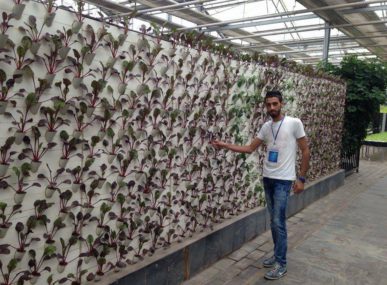“Growing up on a farm has given me a special perspective on our relationship with nature. I always knew I would return [to agriculture] one day,” sais Chakhari, Bio-Chèvre-Lait aims to modernize goat farming in a sustainable way, while integrating the business seamlessly into Kasserine’s economy.
Chakhari’s mission demands that he find ways to encourage local people to stay in Kasserine. The region has a deep agricultural tradition, but many residents are moving Tunisia’s coastal regions in search of greater job opportunities. Goat farming in particular could do much more to support the local community: most consumption at present is mainly domestic, with few official regulations or certifications in place. This means that Tunisian goat’s milk and cheese products are largely absent from the market.
But Chakhari sees a commercial opening, given that Kasserine has experienced goat-tenders in abundance. He wants to harness this local know-how by helping local farmers work more efficiently together as part of a broader agriculture network.
“The government wants to populate this region in an effort to fight terrorism. Is there any better way of doing it besides empowering the locals, who know and love the region more than anything else, and give them good reasons to stay?” Chakhari said.


